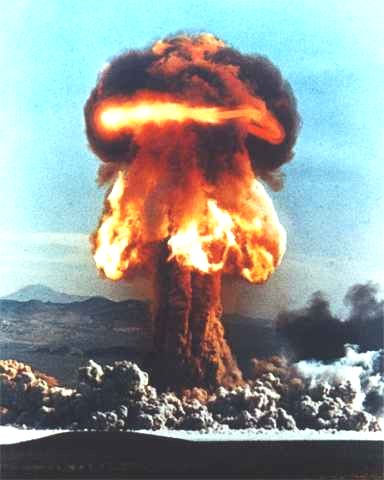 영어토론방 영어토론방 | Home>영어토론방 |
Theothers Bombing of Hiroshima
페이지 정보

본문
 |
With the end of the European war, the Allies focused their efforts on Japan. Japan still fought fanatically, despite being badly hurt by bombing and blockade.
The Potsdam Proclamation, which demanded the unconditional surrender of Japan, was issued. It made no mention of Japan's central surrender condition: the status of the Emperor. Japan rejected the Proclamation.
The Japanese believed the Emperor to be a god (this is a key point).
The U.S. dropped atomic bombs on Hiroshima and Nagasaki. Russia declared war against Japan.
Japan, because of its military, still refused to surrender.
Japanese peace advocates, fearing the imminent destruction of the Emperor, prevailed upon the Emperor to break with tradition and make government policy by calling for peace now. The Emperor did so.
As the result of the Emperor's call for surrender, the entire Japanese cabinet, including the military, agreed to surrender. The cabinet saw that this would allow the Emperor to be retained.
Even Japan's doves would have fought to the death had they not felt the Emperor would be spared. They saw "unconditional surrender" as a threat to the Emperor.
President Truman had been advised of the importance of the Emperor to the Japanese.
Japan was seeking Russia's help to end the war in July 1945. The U.S. was aware of this at the time thru intercepted Japanese cables. But the U.S. did not keep up with this change in Japan's position.
The U.S. chose military methods of ending the war rather than diplomatic methods. The desire for revenge helped make military methods more attractive.
Was it necessary to use the atomic bomb on Japan to end the war without an invasion of the Japanese mainland? Quotes from historians who felt it was not necessary can be found in: Article. Quotes from prominent Americans who felt the atomic bombings were not necessary can be found in: Quotes.
We probably could have ended the war sooner with fewer deaths on all sides by using the full carrot and stick: 1) offer retention of the Emperor for a quick surrender; and 2) threaten Russian invasion and 3) atomic destruction as the alternative. None of these key incentives to surrender were used prior to the atomic bombing of Hiroshima.
Had the above method failed, and had the Russian invasion failed to bring surrender soon, the atomic bombs were still available - but as a last resort.
After the atomic bombings, Japan was allowed to retain their Emperor, anyway.
After reading this, I came up with a question: Was this necessary? I am not so sure. If the Americans did not bomb Hiroshima, Japan would loose more population and power, so in a way, it was good. But the bombing also caused long term diseases and deaths. I cannot really decide which side to take. Was it Necessary or not.
댓글목록
등록된 댓글이 없습니다.

